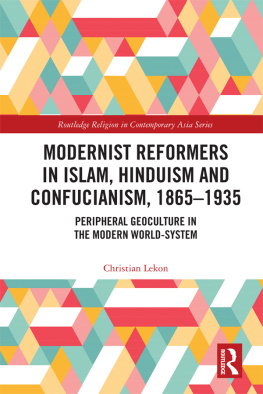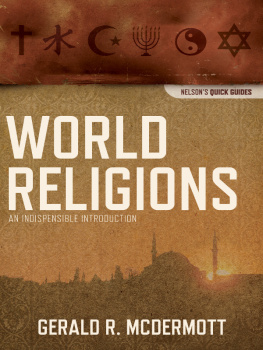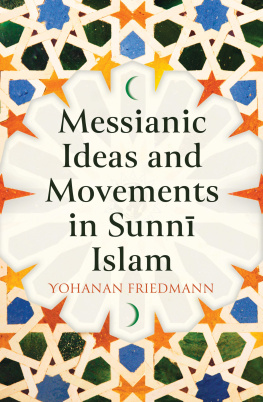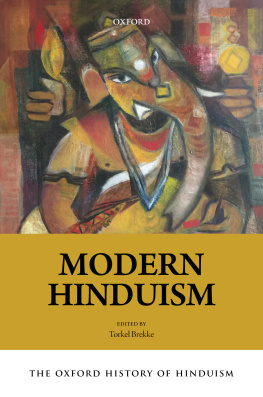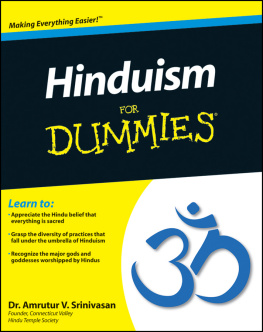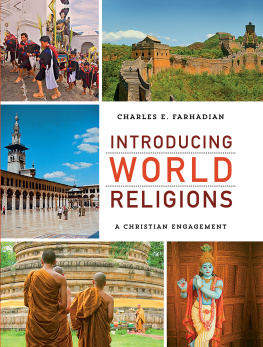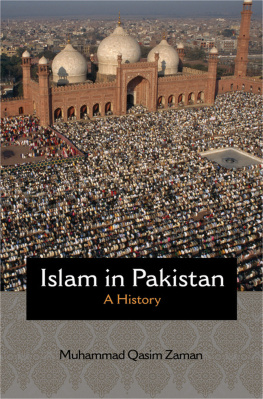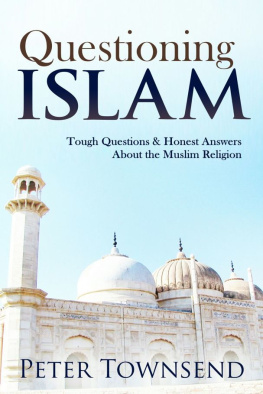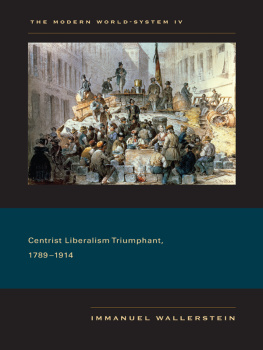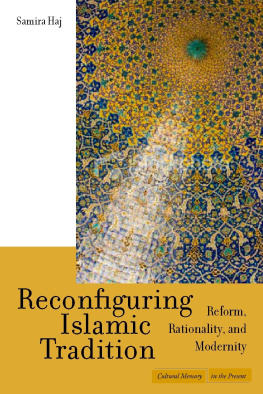Modernist Reformers in Islam, Hinduism and Confucianism, 18651935
This volume presents a comparison of seven major religious reformers of the late nineteenth and early twentieth centuries: For Islam, Jamal ad-Din al-Afghani, Muhammad Abduh and Muhammad Rashid Rida; for Hinduism, Dayananda Sarasvati and Swami Shraddhananda; for Confucianism, Kang Yu-wei and Liang Chi-chao. Each of these reformers attempted to bring a major world religion in line with global modernity by creatively reinterpreting the traditions on which this religion was based. The book outlines the lives and major ideas of these reformers, highlights the similarities between them, interprets their agenda as expressions of peripheral geoculture (centrist liberalism, antisystemic movements, positivism) in line with the Modern World-System (MWS) approach and links them with their fundamentalist successors from the mid-twentieth to the early twenty-first centuries. This way, the author seeks to redress the Eurocentric bias that sometimes sneaks into the MWS perspective.
While there are numerous studies dealing with each of these reformers, the original contribution of this book is to provide a systematic comparison between them and to interpret them within a larger theoretical framework. It will be of interest for scholars and students working on issues related to religion, modernity and historical sociology.
Christian Lekon received his PhD in International Relations at the London School of Economics and Political Science. Currently, he is lecturer at the Department of International Relations, Ankara Yldrm Beyazt University.
Routledge Religion in Contemporary Asia Series
Series Editor
Bryan S. Turner, Professor at the City University of New York and Director of the Centre for Religion and Society at the University of Western Sydney
State Management of Religion in Indonesia
Myengkyo Seo
Religious Pluralism, State and Society in Asia
Edited by Chiara Formichi
Thailands International Meditation Centers
Tourism and the Global Commodifcation of Religious Practices
Brooke Schedneck
Digital Culture and Religion in Asia
Sam Han and Kamaludeen Mohamed Nasir
Being Catholic in the Contemporary Philippines
Jayeel Serrano Cornelio
Catholics and Everyday Life in Macau
Changing Meanings of Religiosity, Morality and Civility
Chen Hon Fai
Sufi Political Thought
Milad Milani
Modernist Reformers in Islam, Hinduism and Confucianism, 18651935
Peripheral Geoculture in the Modern World-System
Christian Lekon
Modernist Reformers in Islam, Hinduism and Confucianism, 18651935
Peripheral Geoculture in the Modern World-System
Christian Lekon
First published 2019
by Routledge
2 Park Square, Milton Park, Abingdon, Oxon OX14 4RN
and by Routledge
52 Vanderbilt Avenue, New York, NY 10017
Routledge is an imprint of the Taylor & Francis Group, an informa business
2019 Christian Lekon
The right of Christian Lekon to be identified as author of this work has been asserted by him in accordance with sections 77 and 78 of the Copyright, Designs and Patents Act 1988.
All rights reserved. No part of this book may be reprinted or reproduced or utilised in any form or by any electronic, mechanical, or other means, now known or hereafter invented, including photocopying and recording, or in any information storage or retrieval system, without permission in writing from the publishers.
Trademark notice: Product or corporate names may be trademarks or registered trademarks, and are used only for identification and explanation without intent to infringe.
British Library Cataloguing-in-Publication Data
A catalogue record for this book is available from the British Library
Library of Congress Cataloging-in-Publication Data
Names: Lekon, Christian, author.
Title: Modernist reformers in Islam, Hinduism and Confucianism, 18651935 : peripheral geoculture in the modern world-system / Christian Lekon.
Description: First [edition]. | New York : Routledge, 2019. | Series: Routledge religion in contemporary Asia series ; 8 | Includes bibliographical references and index.
Identifiers: LCCN 2019012705 (print) | LCCN 2019013524 (ebook) | ISBN 9781317284659 (Adobe Reader) | ISBN 9781317284642 (Mobipocket) | ISBN 9781317284635 (ePub3) | ISBN 9781138187719 (hardback) | ISBN 9781315642987 (ebook)
Subjects: LCSH: Religions. | Islam. | Hinduism. | Confucianism. | ReligionsRelations.
Classification: LCC BL41 (ebook) | LCC BL41 .L455 2019 (print) | DDC 209dc23
LC record available at https://lccn.loc.gov/2019012705
ISBN: 978-1-138-18771-9 (hbk)
ISBN: 978-1-315-64298-7 (ebk)
Typeset in Times New Roman
by Apex CoVantage, LLC
To my wife, and to the memory of my parents.
Contents
I am in debt to Raj Brown and Hans-Heinrich Nolte for providing both intellectual stimulation and practical support. It is their encouragement that has made this book possible. While the manuscript was work in progress, Bryan Turner and Peter Sowden have throughout been patient and supportive.
Furthermore, I would like to express my gratitude and appreciation to my colleagues at the Political Science Faculty at Ankara Yldrm Beyazt University and at the editorial team of the Zeitschrift fr Weltgeschichte.
Any shortcomings of this book are entirely my own responsibility.
Thanks are also due to Aysel nol, mit Dilek and Ik Dilek for their personal support.
This book is devoted to my wife, Ayen Dilek Lekon, and to my late parents, Ernst Lekon and Christa Lekon. I am deeply grateful for all the love and guidance they have given me throughout my life.
Three iconoclasts or Fundamentalists?
In 1883, a discussion concerning the merits and demerits of Islam was carried on the pages of the Parisian Journal de Dbats. The famous Semitist and philosopher Ernest Renan claimed that Muslims in general and Arabs in particular had an aversion to philosophy and science. For a time, the latter had indeed flourished in the Islamic world but this had been due to the continuing Greek and Persian intellectual influence there. Renans smug assumption was challenged by Jamal ad-Din al-Afghani, an alim (Islamic scholar) and political activist. In reply to Renan putting down the Arabs, al-Afghani emphasized those numerous philosophers with Arab roots. As for Renan deeming Islam hostile to science, al-Afghani argued that there was a deep gap between religious dogma and free inquiry. In this respect, Islam was certainly no exception but, then again, Christianity did not score better. True, the West had recently advanced a lot but, considering the fact that Christianity was older than Islam, this was simply because it had a headstart. There was thus reason to expect that the Islamic world would in time follow the West on the path to progress. In a brief reply, Renan stuck to his guns as far as the dearth of Arab philosophers was concerned. But he largely conceded al-Afghanis point about Christianity not scoring much better than Islam with respect to the advance of science.
All in all, the debate between Renan and al-Afghani was a polite exchange about minor differences between two people who agreed on the larger picture, i.e. that there was a sharp contradiction between religion and science and that the West was more advanced than the Islamic world. Indeed, far from defending Islam against the French atheist, the

